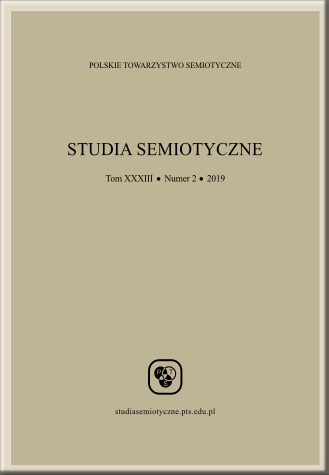Abstract
DOI: http://doi.org/10.26333/sts.xxxiii2.09
According to Adams and his colleagues, fictional sentences, i.e. sentences featuring fictional names, lack any truth value. To explain intuitions to the contrary, they refer to the pragmatics of fictional assertions and claim that sincere utterances of those sentences generate some conversational implicatures. They argue that all who take fictional sentences to have a truth value tend to mistake implicatures of assertions of such sentences with their literal content. The aim of the paper is to show that this argument is not convincing. The challenge being that it doesn’t provide any satisfactory explanation as to what is negated in seemingly genuine disagreement cases in which fictional sentences are asserted. Sentential negation usually doesn’t affect (i.e. negate) a proposition which is conversationally implied, especially when it comes to the manner implicature. And, as I argue, an advocate of the pragmatic defence should maintain that this is the kind of conversational implicature that the assertion of fictional sentences generates.
References
Adams, F., Dietrich, L. (2004). What’s in A(n Empty) Name? Pacific Philosophical Quarterly, 85, 125–48.
Adams, F., Fuller, G. (2007). Empty Names and Pragmatic Implicatures. Canadian Journal of Philosophy, 37, 449–462.
Adams, F., Fuller, G., Stecker, R. (1997). The Semantics of Fictional Terms. Pacific Philosophical Quarterly, 78, 128–148.
Adams, F., Stecker, R. (1994). Vacuous Singular Terms. Mind and Language, 9, 387–401.
Båve, A. (2008). A Pragmatic Defence of Millianism. Philosophical Studies, 138(2), 271–289.
Currie, G. (1990). The Nature of Fiction. Cambridge: Cambridge University Press.
Everett, A. (2003). Empty Names and ‘Gappy’ Propositions. Philosophical Studies, 116, 1–36.
García-Carpintero, M. (2007). Fiction-Making as Gricean Illocutionary Type. The Journal of Aesthetics and Art Criticism, 65 (2), 203–216.
García-Carpintero, M. (2015). Is Fictional Reference Rigid? Organon F, 22, 145–168.
Green, M., s. (2007). Direct Reference, Empty Names and Implicature. Canadian Journal of Philosophy, 37, 419–447.
Horn, L., R. (1985). Metalinguistic Negation and Pragmatic Ambiguity. Language, 61, 121–174.
Horn, L., R. (2001). A Natural History of Negation. Stanford: CSLI Publications.
Kripke, s. (2013) Reference and Existence: The John Locke Lectures. Oxford: Oxford University Press.
Lewis, D. (1978). Truth in Fiction. American Philosophical Quarterly, 15 (1), 37–46.
Pelc, J. (1983). O bytach fikcyjnych i tekstach fikcjonalnych. Studia Semiotyczne, 13, 179–224
Piccinini G., Scott s. (2010). Recovering What Is Said with Empty Names. Canadian Journal of Philosophy, 40, 239–274.
de Ponte, M., Korta, K., Perry, J. (2018). Truth Without Reference: The Use of Fictional Names. Topoi. doi: 10.1007/s11245-018-9544-6.
Reimer, M. (2001). The Problem of Empty Names. Australian Journal of Philosophy, 79, 491–506.
Sainsbury, M. (2010). Fiction and Fictionalism. London: Routledge.
Tiedke, H. (2011). Proper Names and Their Fictional Uses. Australasian Journal of Philosophy, 89(4), 707–726.


